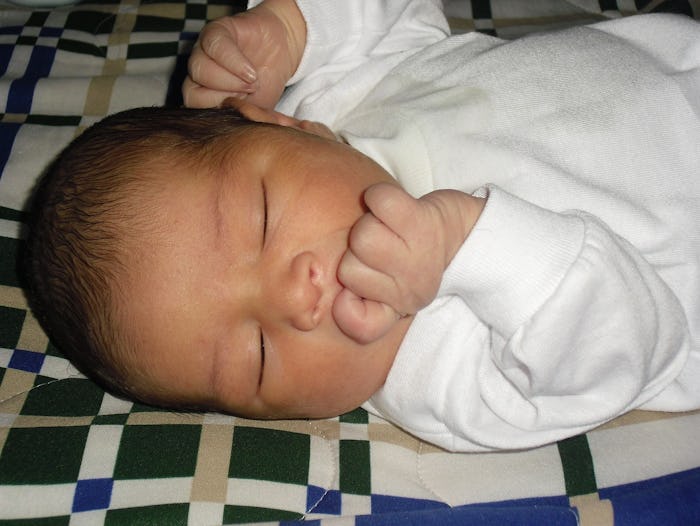Almost every mom finds herself desperate for some uninterrupted sleep, especially if her baby is still nursing several times overnight. Parents who wake up often to feed and comfort their baby can develop a large sleep deficit which can negatively affect their parenting, workday, and even their health. If several months have gone by and your baby hasn't started sleeping through the night, you might be considering sleep training. Some parents avoid sleep training because they can't bear to hear their baby cry, but what if you could teach your baby to self-soothe? What is the self-soothing sleep method, you ask? It is a way to get everyone in the family caught up with sleep.
Self-soothing is a way that your baby can learn how to comfort herself during bed time or when waking up in the night without needing to be nursed or rocked to sleep. Lead sleep consultant for Baby Sleep Site, Nicole Johnson wrote an article for Sleeping Baby that noted that a baby who can self-soothe is a baby who can calm himself down and regulate his emotions. The website Ask Dr. Sears added that babies can start to learn how to soothe themselves between the ages of six and nine months, with some parental guidance of course.
You can start teaching your baby how to self-soothe by not immediately scooping them up the moment they become fussy. You should practice doing this during the day when your baby is in your line of sight so you can verbally reassure your little one that you are nearby and everything is OK. Ask Dr. Sears noted that it's important for your baby to learn how to be contented by your presence and the sound of your voice rather than by always being held in your arms.
The next step is to try to teach your baby how to self-soothe at night. Set up a consistent sleep routine that your baby will associate with bedtime. If you're still rocking or nursing your baby to sleep, Johnson recommended gradually shortening the amount of time you do so, so that you can put your baby to bed drowsy, but not asleep.
Babies may suck on their fingers or use a pacifier to self-sooth as they fall asleep. They often learn to use this same technique to quickly fall back to sleep if they wake up in the middle of the night. It's important that you give babies a couple of minutes to try to use self-soothing techniques before rushing in to comfort them. When you do enter the room, Ask Dr. Sears suggested patting them with a reassuring hand or reinserting their thumb or pacifier rather than immediately pulling them out of the crib.
If none of these methods seem to work for your baby, they may not be developmentally ready for sleep-training. But, don't wait too long after the six month mark to begin. According to Johnson, research has found that children who haven't learned to self-soothe by the time they turn one were more likely to have trouble falling asleep at age two, and may still wake up in the night at age four.
